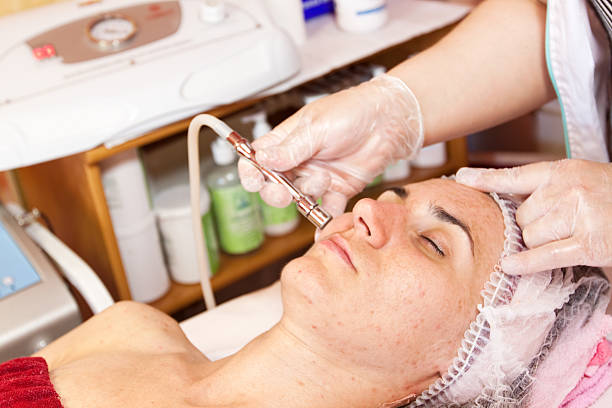Acne scars can be emotionally distressing, affecting one’s self-confidence and quality of life. However, thanks to advancements in dermatological technology, laser treatments have emerged as a breakthrough solution for reducing the appearance of acne scars. Laser therapies offer a safe, effective, and non-invasive approach to addressing different types of acne scars, allowing individuals to achieve smoother, clearer skin. In this article, we will explore the world of laser treatments for acne scars, delving into their benefits, procedures, expected results, and considerations, empowering you to make informed decisions about this transformative treatment option.
Understanding Acne Scars
Acne scars come in various forms, including atrophic (depressed) and hypertrophic (raised) scars. Atrophic scars appear as indentations or depressions in the skin, while hypertrophic scars result from excess collagen production during the healing process. Laser treatments can effectively address both types of scars by targeting the damaged tissue and stimulating collagen production. This process encourages the growth of new, healthy skin cells, gradually replacing the scarred tissue and improving the overall texture and appearance of the skin.
Benefits of Laser Treatments (100 words):
Laser treatments for acne scars offer numerous advantages over traditional methods. Firstly, they are non-invasive, minimizing the risk of infection and reducing downtime after the procedure. Laser therapy is also highly precise, allowing dermatologists to target specific areas and tailor the treatment to individual needs. Furthermore, laser treatments stimulate collagen production, promoting the growth of new, healthy skin cells that gradually replace scarred tissue. This results in smoother, more even-toned skin, boosting self-confidence and improving the overall complexion.
Different Types of Laser Treatments
There are several options when choosing a laser treatment for acne scars. Fractional laser resurfacing is a popular option that delivers controlled laser beams to create microscopic channels in the skin. This process triggers the body’s natural healing response, stimulating collagen production and replacing damaged tissue with fresh, healthier skin cells.
Another type of laser treatment is ablative laser resurfacing, which removes the outer layer of the skin to stimulate collagen production and improve overall skin texture. Non-ablative lasers, on the other hand, penetrate the skin without damaging the surface, promoting collagen production and remodeling the scarred tissue.
Combination laser therapies may also be utilized, combining different laser wavelengths and technologies to address specific scar types and skin conditions. Your dermatologist will assess your unique situation and recommend the most suitable laser treatment based on factors such as scar severity, skin type, and desired outcomes.
Procedure and Recovery
Before the acne scar laser treatment, a consultation with a dermatologist is essential to evaluate the specific acne scars, discuss treatment goals, and determine the appropriate laser therapy. The procedure itself is typically performed in a clinical setting, with the duration varying based on the size and number of scars being treated.
During the treatment, protective eyewear is worn, and the dermatologist will use the laser device to target the scarred areas. The sensation experienced during the procedure varies from person to person but can be described as a mild tingling or warm sensation. To maximize patient comfort, numbing creams or cooling devices may be utilized.
Following the treatment, it is normal to experience some redness, swelling, or mild discomfort, which usually subsides within a few days. Dermatologists provide aftercare instructions, which may include gentle cleansing, moisturizing, and avoiding direct sunlight. It’s important to follow these instructions diligently to ensure optimal healing and minimize the risk of complications.
Expected Results and Considerations
Laser treatments for acne scars offer gradual and progressive results. Multiple sessions may be required to achieve the desired
outcome, depending on the severity of the scars and individual factors such as skin type and overall health. The improvement in the appearance of acne scars continues over time as collagen production is stimulated and new skin cells replace the damaged tissue.
It is crucial to consult with a qualified dermatologist who specializes in laser therapy to determine the most suitable treatment plan for your specific condition. They will guide you through the process, provide realistic expectations, and address any concerns you may have.
Conclusion
Laser treatments for acne scars have revolutionized the field of dermatology, providing individuals with a safe, effective, and non-invasive solution for achieving smoother, clearer skin. By stimulating collagen production and promoting the growth of healthier skin cells, laser treatments offer hope and renewed confidence to those struggling with acne scars. Consult with a trusted dermatologist to explore this transformative treatment option further.




